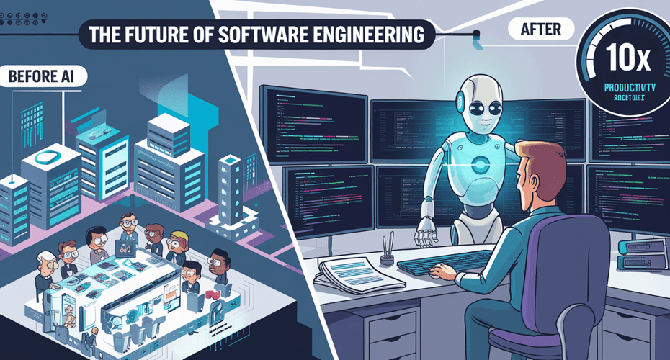Dev
3w
329

Image Credit: Dev
AI & The Future of Software Engineering: Advanced Prompting Techniques for 10x Efficiency
- The article discusses AI prompting techniques that drastically improve software development efficiency, illustrating the evolution of AI collaboration in coding.
- Effective AI prompting emphasizes clear context, defined constraints, progressive iteration, and error resolution strategies.
- Key principles include contextual anchoring, rules-based frameworks, constraint definition, and progressive iteration for optimal AI output.
- The 'PREP method' (Problem definition, Requirements, Example integration, Pattern suggestion) is proposed for effective AI interaction.
- Advanced techniques like Schema-First Development, Test-Driven Prompting, Comparative Prompting, and Multi-Tool Orchestration are explored.
- The importance of knowledge-based coding alongside AI utilization is highlighted for maintaining code quality and understanding.
- Tools like Model Context Protocol (MCP) and Retrieval Augmented Generation (RAG) are identified as enhancing AI-assisted development.
- The future of developer-AI collaboration lies in architectural thinking, effective communication, system orchestration, and judicious AI application.
- Developers are encouraged to build shared knowledge bases for optimizing AI collaboration and productivity in software development.
- The article promises future insights into leveraging AI for rebuilding legacy applications, a promising application of AI technologies.
- The author, with extensive software engineering experience, navigates the new AI landscape in software development, exploring AI's impacts.
Read Full Article
19 Likes
For uninterrupted reading, download the app